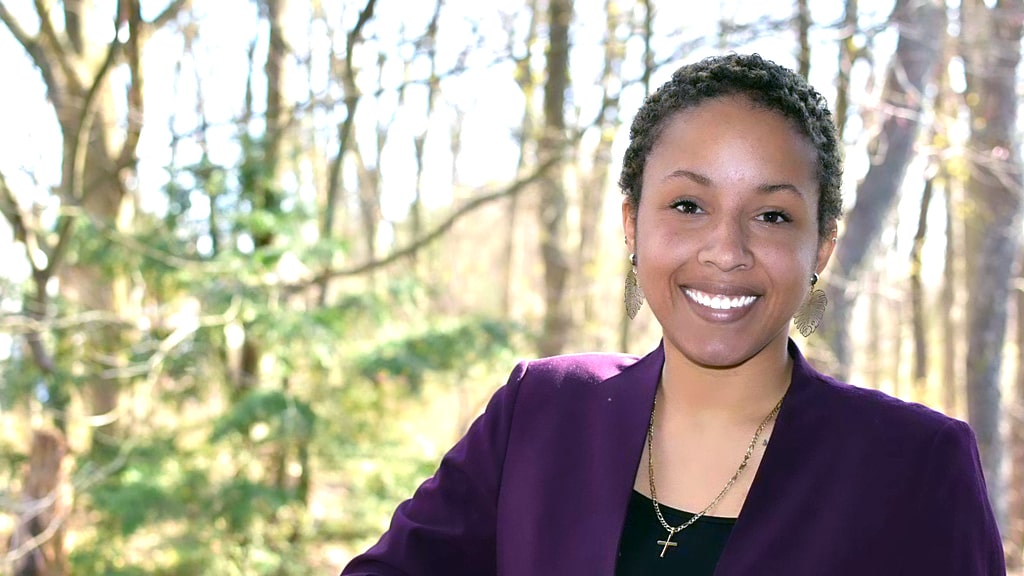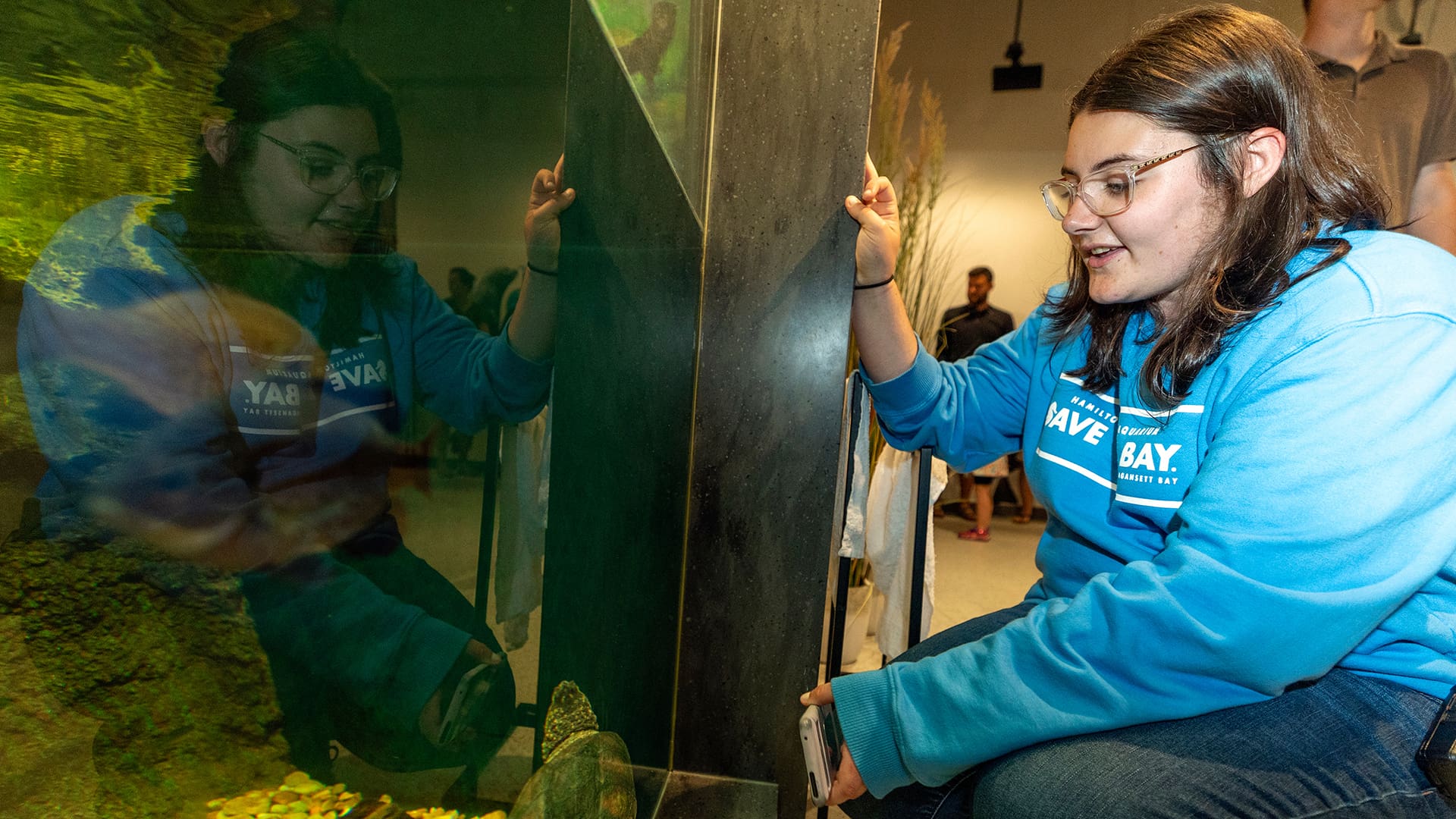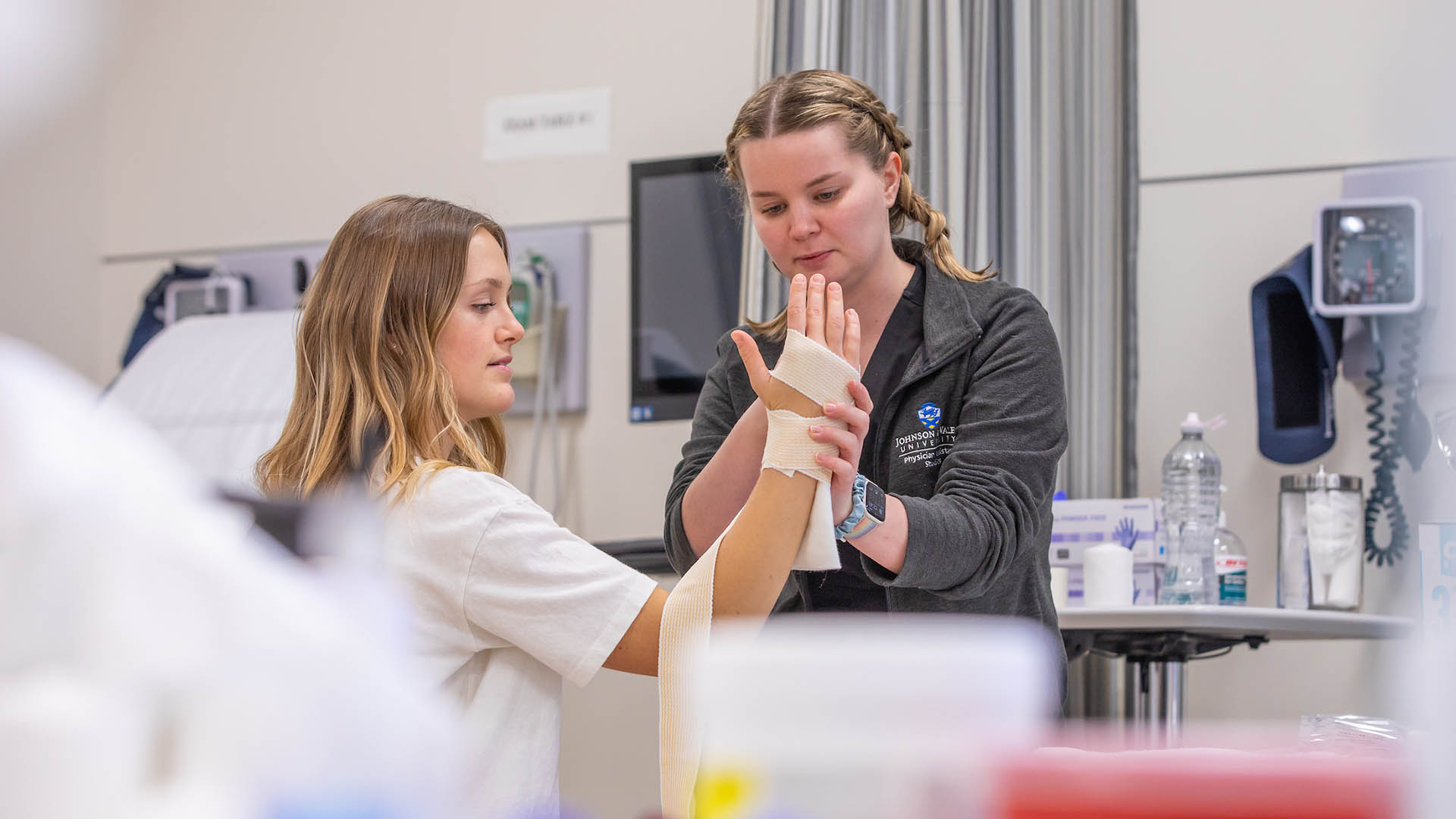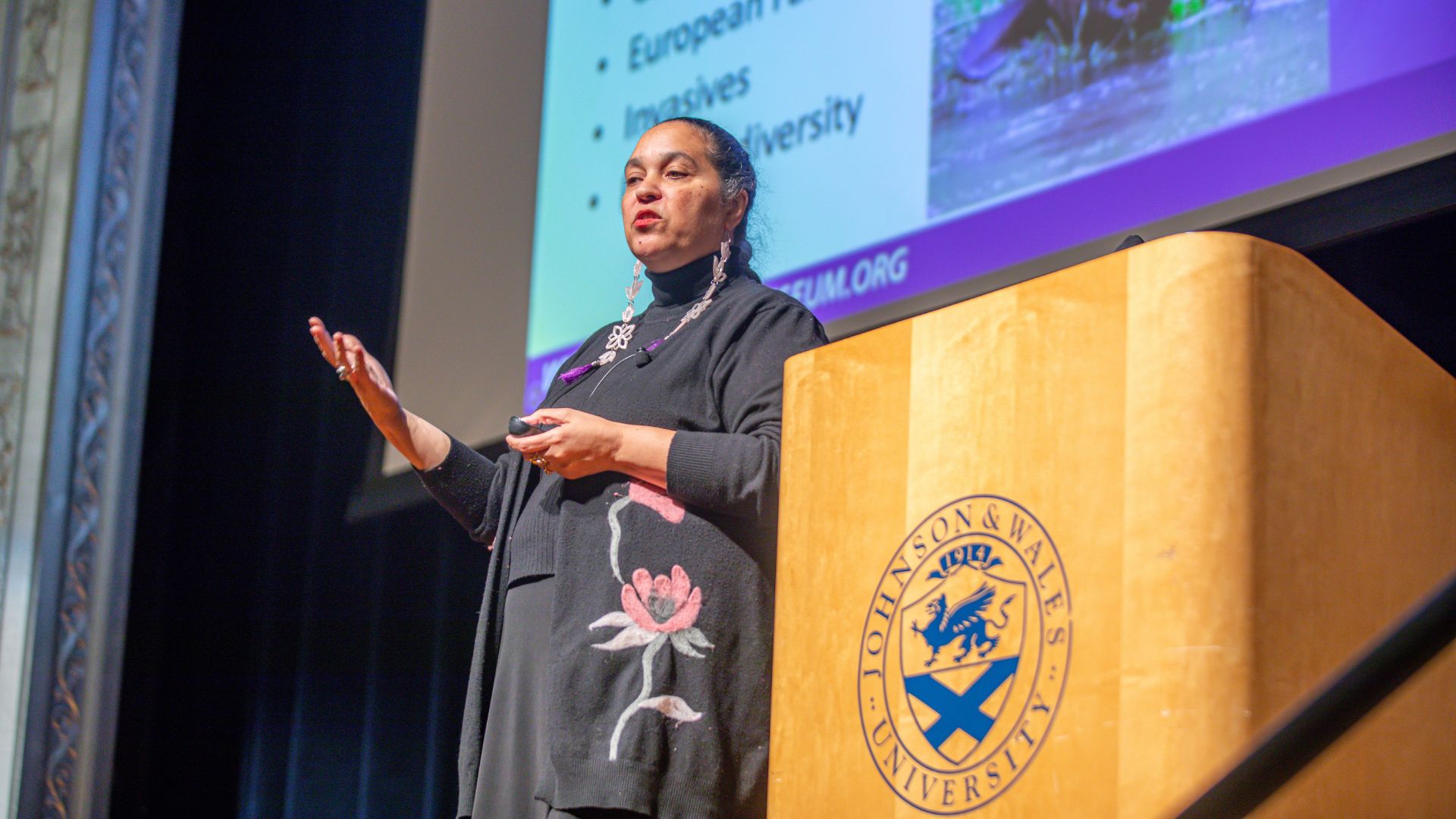For Fellowship Recipient Unique Pelletier, Counseling Is Deeply Personal
For Unique Pelletier '21, the connection to family has been her major inspiration for getting her master’s degree in clinical mental health.
She initially went to college to become a social worker, but something wasn’t clicking. It wasn’t until she met her biological father 8 years ago that she realized that she really wanted to be in the mental health field: “He told me that the sober house he now runs and operates is the same one where he was able to begin his road in recovery,” she explains. It was that very resilience — his ability to turn his life around and “open the doors to individuals whose stories and struggles he knew all too well” — that inspired Pelletier to change her professional focus.
“I want to explore the stigma of mental health treatment overall, [particularly] in black and brown communities.”
Pelletier’s own start in life was not easy. Both of her biological parents were addicts; the pregnancy was unplanned. She tested positive for illicit drugs when she was born: “I was immediately taken away from my biological mother. There was no skin-to-skin contact, or her being allowed to hold me, etc. I found this to be troublesome because the stigma of substance use is brought into the delivery and hospital rooms of pregnant women. Not only does this affect pregnant women, but it also affects their newborn babies.” This trauma of separation at birth is called the “primal wound”; Pelletier recommends the book-length investigation by Nancy Newton Verrier.

Growing up as an adoptee in Rhode Island, Pelletier found it hard to find supportive resources at a time when she was struggling with issues of identity and belonging. “It was difficult to grow up not looking like my parents or the people around me,” she explains. “And there really is minimal support for teens/young adults struggling to properly identify themselves when they are adopted. It was hard to find resources or people to talk to about these issues.”
Now, as she deepens her own practice, she is intent on working to increase access to underserved populations, as well as helping to reduce the potential barriers to seeking help. “I want to explore the stigma of mental health treatment overall, [particularly] in black and brown communities, as these populations have less awareness, acceptance, and possible access to mental health services,” she notes.
To this end, Pelletier is one of 40 master’s-level addiction counseling students that have received the National Board for Certified Counselors (NBCC) Foundation’s Minority Fellowship Program for Addictions Counselors (MFP-AC). As an NBCC MFP-AC Fellow, Pelletier will receive funding and training to support her education and facilitate her work with underserved populations. In addition, “this fellowship has allowed me to connect with black and brown minority clinicians,” she says.
Pelletier currently works primarily with individuals who suffer from opioid use disorder and co-occurring mental health issues, but she hopes that the fellowship will enable her to expand that population to include adolescents. “I believe that the elements of foster care, being an orphan, and adoption all have the potential to align with addiction and substance-use disorders, depending on the environment in which the child was raised.” Those contributing factors can vary: How much time was spent with the biological family? Was there a known history of abuse? Was there a predisposition to addictive tendencies?
“This fellowship has allowed me to connect with black and brown minority clinicians.”
Ultimately, Pelletier would like to facilitate partnerships between state resources and nonprofit organizations, like Children’s Friend, in order to strengthen the network of support available in Rhode Island and Massachusetts. (While that might be out of scope during her fellowship year, she hopes to focus on that work once she graduates from JWU with her master’s degree.)
No matter where her works takes her, she is buoyed by the faith her parents have in her. “My biological father could not be prouder of me, and never ceases to tell me this,” she says. “My parents are also very proud of me and play a massive role in my development as a mental health clinician. Without them, I do not know where the system would have placed me and what kind of life I would have been given to lead.”
Unique Pelletier graduated with her M.S. in 2021, and is currently practicing in Woonsocket, Rhode Island.



